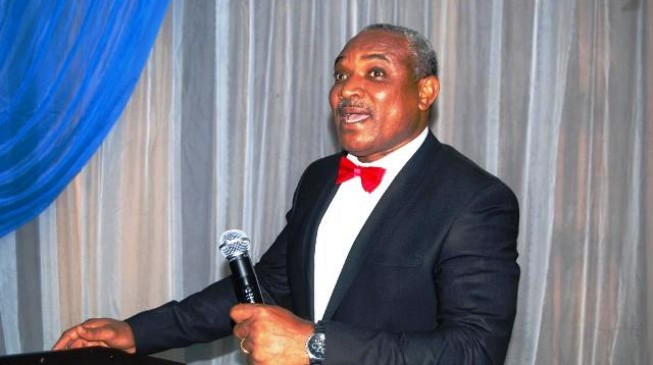
According to the presidency, contrary to the positon of the NJC, there was a subsisting notice of appeal against the judgment that acquitted justice Adeniyi Ademola.
In a statement issued on Monday, Okoi Obono-Obla, special assistant to the president on prosecution, said some assertions made by the NJC on the issue were false.
He described them as a deliberate misrepresentation of the law and facts.
“I wish to debunk some of the assertions contained in the statement issued by Soji Oye, Director of Information, NJC, which was widely reported in the media on June 12,” he said.
“One of such false assertions by Oye is the claim that the office of the Attorney-General of the Federation had on two occasions – April 18 and April 21- shunned invitations by the FCT High Court for settlement of records of appeal which if it had done, would have elevated the notices of appeal to proper appeal.
“Undoubtedly, the statement of Oye is a deliberate misrepresentation of the law and facts. On the contrary, the FCT High Court Registry by a notice dated 6 June signed by one Paul Edili, Head of Appeal, invited both parties to the appeal to attend court on June 14 for the purpose of reconciliation of records of appeal.
“It goes without saying that the assertion of Oye that the Office of the Attorney -General had on two occasions, April 18, and April 21, respectively shunned the invitation of the FCT High Court Registry is not correct.”
Obono-Obla challenged Oye to furnish the office of the attorney-general with proof of service of the notices that were shunned.
“It is obvious that Oye, in his haste to defend the indefensible, muddled up the law concerning the role of an appellant and the registry of the court where an appeal emanates from.
“In the interest of the discerning public and the need to put the record straight, I wish to state as follows:
“By Order 8 of the Court of Appeal Rules, 2016, the Registrar of the Court below has a duty to compile and transmit the Record of Appeal to the Appeal Court.
“This, he has 60 days to do; commencing from the day the notice of appeal is filed. And it is immaterial that parties do not attend court for purpose of settlement of the said record.
“It is only where the registrar fails or neglects to transmit the record of appeal in accordance with Order 8, Rules 1-3, that the appellant may intervene upon the expiration of the initial 60 days, to compile and transmit the record of appeal.
“And the appellant has additional 30 days to do so. See Order 8, Rule 4 of the Court of Appeal Rules 2016.
“In the instant case, I am unaware of any notice for settlement of record of appeal served on the Office of the Attorney-General apart from that issued on June 6, against the June 14 date.
“But assuming there was any notice for settlement of record of appeal, the failure of the appellant to attend court for settlement of the said record would not prevent the registrar of the lower court from performing his duty in line with Order 8, Rule 2 of the Court of Appeal Rules 2016.
“If the notice of appeal was filed on the April 7, the Registrar of the lower court had 60 days to settle and transmit the record of appeal.
“In fact, with the filing of additional notice of appeal on June 6, the registrar now has additional 60 days terminating on or about Aug. 6, to settle and transmit the record of appeal.
“It is only if, and when, the registrar fails to compile and transmit the record within 60 days effective from June 6, that the appellant may step in to so do within additional 30 days.”
He said the NJC cannot feign ignorance of the rules of the court it supervises and the assertion that it is a total of 45 days that is allowed for the compilation of record of appeal in all circumstances is false.
Ademola resumed sitting on June 7 following a directive by the NJC for him to do so. Cable Nigeria
No comments:
Post a Comment